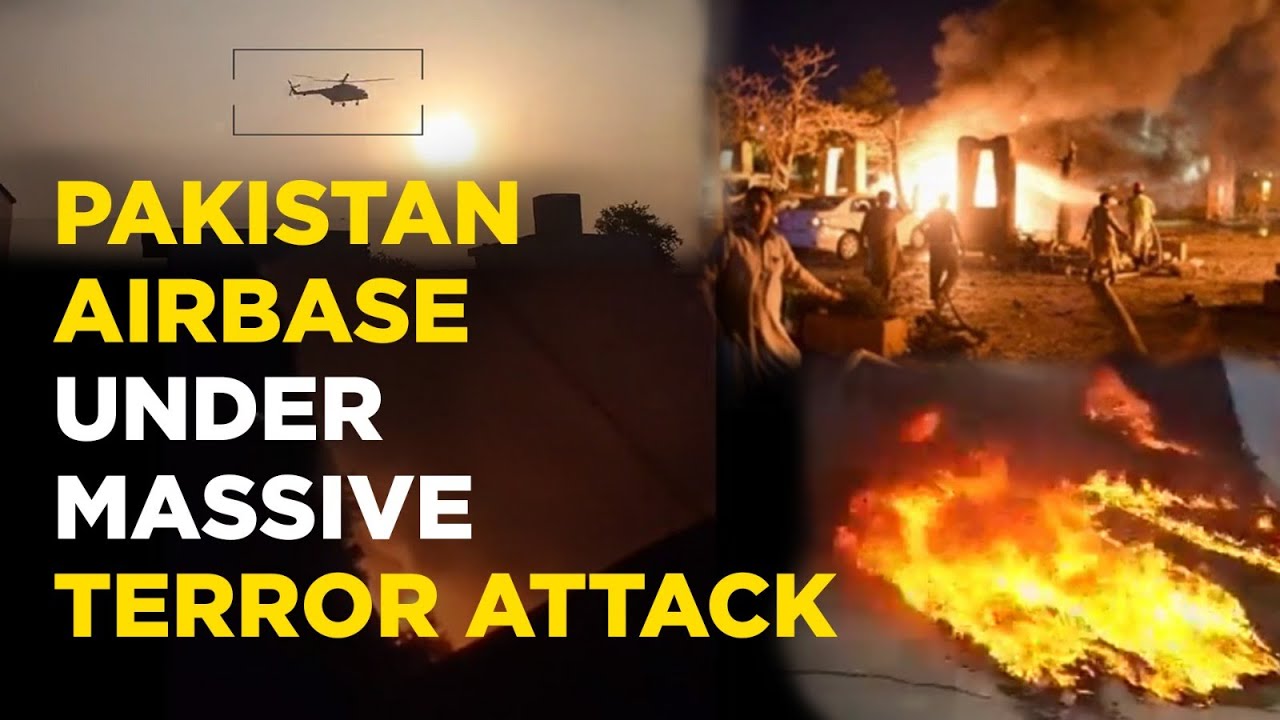Three of the six suicide bombers were killed in retaliatory gunfire, according to the Pakistan Air Force (PAF), as they attempted to attack an Air Force facility in Mianwali, Punjab, on Saturday morning. Before the terrorists could take over the airbase, the PAF stopped their onslaught by exchanging gunfire with the highly armed extremists.

About three planes that were parked inside the Air Force base were damaged in the attack, and a fuel bowser also occurred. The assault came to an end after three terrorists were eliminated before they could even reach the air base, and the remaining three were trapped and isolated as a result of the prompt and efficient response of the military.
Later on, the Pakistani terrorist group Tehreek-e-Jihad Pakistan (TJP) claimed responsibility for the attack, and the update came hours after a series of terror strikes that killed at least 17 soldiers in Balochistan and Khyber Pakhtunkhwa. The TTP, also known as the Pakistani Taliban, is associated with the Afghan Taliban, an independent organization that took control of Afghanistan in 2021 while NATO and American forces were drawing to an end of their mission. According to AFP, analysts claim that the Taliban’s 2021 comeback to power in neighboring Afghanistan has given extremist groups more confidence. The Taliban administration disputes Pakistan’s repeated accusations that it harbors terrorists who plot and carry out operations from Afghan territory.
Why TTP are known to attack Pakistan?
The Tehrik-i-Taliban Pakistan (TTP) emerged as a significant threat in Pakistan due to a combination of socio-political, ideological, and strategic factors. Initially formed in 2007 as an umbrella organization for various militant groups, the TTP aimed to establish its interpretation of Sharia law in Pakistan, rejecting the state's authority and targeting perceived enemies, including the Pakistani government, security forces, and civilians.
The TTP's origins can be traced back to the aftermath of the US-led invasion of Afghanistan in 2001, which led to the influx of militants into Pakistan's tribal regions. Exploiting grievances such as perceived government corruption, military operations in the tribal areas, and the alliance with the United States, the TTP garnered support among disenfranchised segments of the population, particularly in the Federally Administered Tribal Areas (FATA) and Khyber Pakhtunkhwa province.
Furthermore, the TTP's ideology, rooted in a radical interpretation of Islam, fueled its anti-state agenda and provided justification for its violent actions against the Pakistani state and society. The group's attacks aimed to destabilize the government, spread fear, and undermine confidence in state institutions.
Additionally, geopolitical dynamics, including Pakistan's complex relationship with neighboring Afghanistan and alleged support for certain militant groups, have contributed to the TTP's ability to operate and launch attacks from safe havens across the border.
Overall, the TTP's attacks on Pakistan are driven by a combination of ideological motivations, grievances against the state, and strategic considerations, making it a formidable challenge for Pakistan's security apparatus.